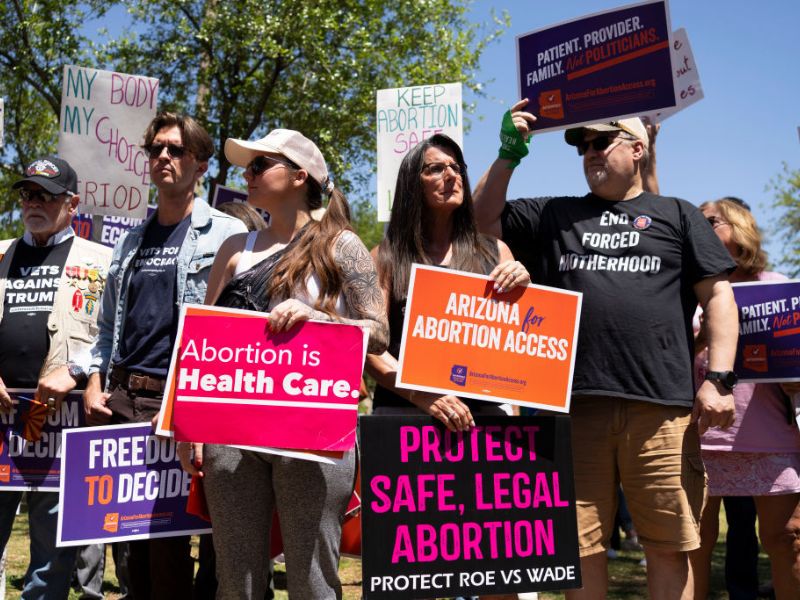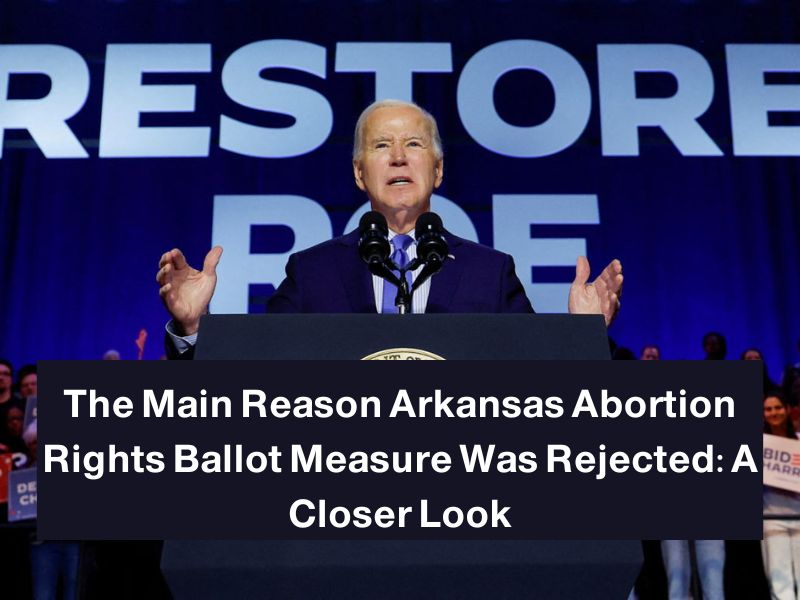In a petulant turn of occasions, Arkansas decision authorities as of late rejected petitions pointed at presenting an abortion-rights poll degree to voters this drop. This choice has started broad wrangling about lawful challenges, highlighting the complex scene of regenerative rights in an overwhelmingly Republican state.
The Arkansas Election Background
Arkansas, known for its preservationist position on social issues, has been at the bleeding edge of the premature birth talk. Taking after the U.S. Preeminent Court’s point of interest 2022 choice that successfully upset Roe v. Swim, the government’s right to fetus removal was expelled, permitting states like Arkansas to sanction exacting fetus removal laws. In reaction to the Incomparable Court administering, Arkansas executed a law prohibiting premature birth but in cases where it is fundamental to spare the mother’s life amid a restorative crisis.
The Proposed Ballot Measure
Amid this legitimate scenery, advocates of premature birth rights in Arkansas looked to challenge these confinements through a poll degree. The proposed sacred revision pointed to permitting fetus removal past the state’s 20-week gestational restrain, allowing it in cases of assault, inbreeding, dangers to the mother’s wellbeing or life, or fetal non-viability.
The Rejection
Despite gathering over 101,000 signatures—surpassing the specified threshold—the petitions were rejected by the secretary of state’s office. The essential reason cited was the disappointment in yielding vital explanations concerning paid signature gatherers, a prerequisite beneath Arkansas law. Secretary of State John Thurston’s office decided that indeed in case all marks from volunteers were numbered, they fell brief of the commanded 90,704 from enlisted voters.
Legal and Political Fallout
The dismissal has activated a quick and incredible reaction from defenders of the poll degree. Arkansans for Constrained Government, the gathering initiating the activity, communicated dissatisfaction and promised to challenge the choice in court. They contended that they had complied with all directions and given fundamental documentation all through the signature-gathering handle.
The choice too underscores the strong polarization encompassing fetus removal rights in Arkansas. Senator Sarah Huckabee Sanders, a noticeable GOP figure who restricted the degree, criticized its supporters as “corrupt and awkward.” The degree confronted restrictions not as it were from traditionalist pioneers but moreover from anti-abortion promotion bunches inside the state, including the Family Board Activity Committee.
Implications for Reproductive Rights

Past the quick legitimate fights, the dismissal of the poll degree has noteworthy implications for regenerative rights in Arkansas. It reflects a broader slant where states are progressively declaring their specialist to direct premature birth freely of government oversight. With the Incomparable Court’s 2022 administering enabling such state-level activities, Arkansas’s exacting premature birth laws are likely to stay a central point in national talks about regenerative opportunity.
Public Reaction and Future Prospects
Open response to the dismissal has been blended, reflecting deep-seated divisions inside Arkansas and all over the country on premature birth arrangement. Supporters of fetus removal rights have discredited the choice as a difficulty for women’s well-being and independence, whereas rivals contend it maintains ethical and moral values concerning the sacredness of life.
Looking ahead, defenders of the poll degree arrange to proceed with their battle through lawful channels, pointing to topple the choice and restore their activity on the poll. The result of these lawful procedures seems to have far-reaching suggestions not as it were for Arkansas but too for the broader scene of premature birth rights in conservative-leaning states over America.
Conclusion
The rejection of the Arkansas abortion-rights poll degree by decision authorities has reignited a furious talk about regenerative rights and state independence in directing premature birth. It outlines the challenges confronted by advocates looking to extend access to premature birth in a politically preservationist environment. As legitimate fights unfurl and open talk heightens, long-term fetus removal rights in Arkansas remains questionable, balanced at the crossing point of law, legislative issues, and profoundly held societal convictions.
This decision is poised to stimulate further debate and legal challenges, underscoring the volatility of reproductive rights in Arkansas and beyond.
Must Read:

